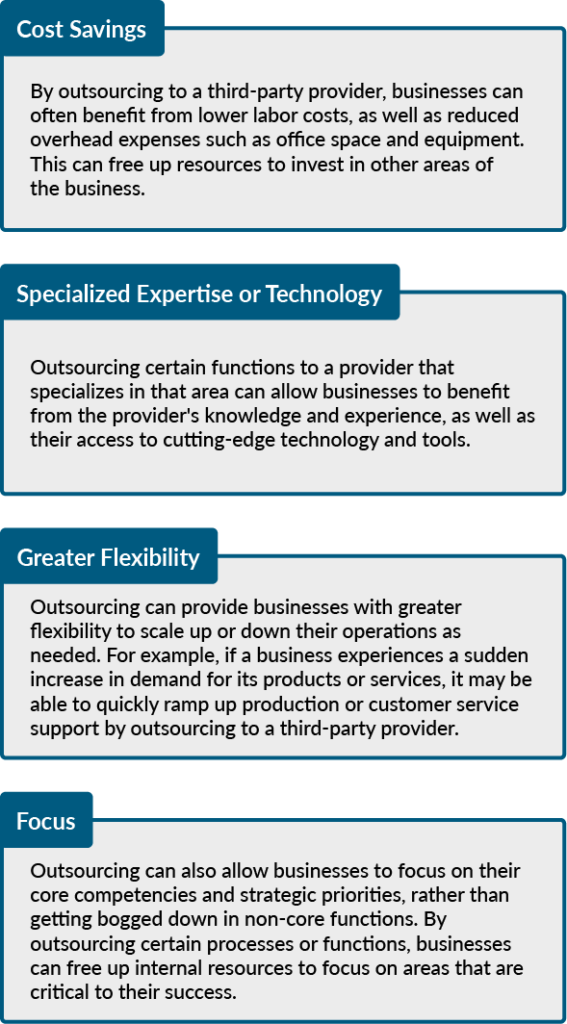Outsourcing
Outsourcing in a business refers to the practice of contracting out specific business processes or functions to an external third-party provider rather than performing them in-house. These processes or functions can include various activities, such as manufacturing, customer service, accounting, information technology, and human resources.
Outsourcing can take different forms, such as offshoring, where the provider is in another country, or nearshoring, where the provider is in a nearby country. Some businesses may outsource to a domestic provider, such as a local accounting or marketing firm.
While outsourcing can provide benefits to businesses, such as cost savings and increased flexibility, it can also have potential drawbacks, such as a loss of control over specific processes or the need to manage relationships with external providers. Despite the potential disadvantages, businesses often outsource certain processes or functions for various reasons.

- Cost savings. By outsourcing to a third-party provider, businesses can often benefit from lower labor costs and reduced overhead expenses such as office space and equipment. This can free up resources to invest in other areas of the business.
- Access to specialized expertise or technology. Outsourcing certain functions to a provider specializing in that area can allow businesses to benefit from the provider’s knowledge and experience and access to cutting-edge technology and tools.
- Outsourcing can provide businesses with greater flexibility to scale up or down their operations as needed. For example, suppose a business experiences a sudden increase in demand for its products or services. In that case, it may be able to quickly ramp up production or customer service support by outsourcing to a third-party provider.
- Outsourcing can allow businesses to focus on their core competencies and strategic priorities rather than getting bogged down in non-core functions. By outsourcing certain processes or functions, businesses can free up internal resources to focus on areas critical to their success.
INSERT VIDEO 4 Here
Of course, each business must carefully consider the potential benefits and drawbacks of outsourcing and weigh them against their specific needs and circumstances.